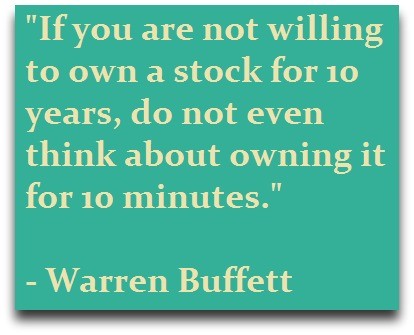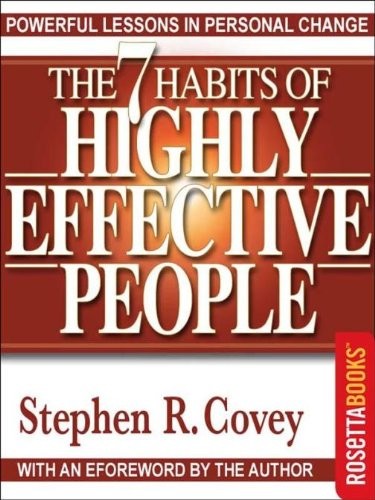THE FIVE HABITS OF HIGHLY SUCCESSFUL INVESTORS
Post on: 27 Март, 2015 No Comment

Text-only Preview
HIGHLY SUCCESSFUL INVESTORS
TIAA-CREF Offers Time-Tested Tips to Help Reach Retirement
Goals for National Save for Retirement Week
National Save for Retirement Week, October 18-24, is a great time for anyone looking to
save for retirement to get started. With that in mind, Brett Hammond, TIAA-CREFs chief
investment strategist, offers these Five Habits of Highly Successful Investors.
1. SET A GOAL
Setting a goal is a very personal activity. For some, its buying a first home. For others,
its paying down a mortgage. Still others might want to retire sooner rather than later.
In any case, success comes by having and working towards a vision.
After establishing a goal, success is in the details. Translate goals into reasonable time
frames and monthly target amounts for savings. Objective counsel from trusted advisors,
who do not receive commissions,1 can help with this process.
Remember these goals are not static and are very much subject to change. Be realistic
and flexible, and revisit your goals whenever there has been a major life change such
as a marriage, the birth of child, or the purchase of a home.
2. TAX-DEFER AS MUCH AS POSSIBLE
One of the ways to build a retirement nest egg is to use tax-deferred products such as
tax-deferred annuities or Individual Retirement Accounts (IRAs). You pay less in taxes
now and can contribute more for your future with money that would otherwise go to
taxes. The additional amounts invested can compound over time and can have a
sizable impact.
Of course there are caveats. Past performance is never a guarantee of future
performance and everyones tax situation is a little different. Vehicles that defer taxes
have restrictions age and income being common ones on when you can access
the money youve invested. Again, talking to an advisor to measure the pros and cons
for your particular circumstances is recommended.
3. DIVERSIFY YOUR PORTFOLIO
Prudent investors dont rely on a few hot stocks or sectors. Instead, they spread their
holdings across a range of investments. According to a well known 1995 study by
Brinson, Hood, and Beebower,2 90% of returns result from asset allocation. A well-
diversified investment portfolio can help provide a measure of stability by insulating
you from the ups and downs of any one type of security or market because various
types of investments equities, fixed income, cash and alternatives such as direct
real estate for example perform differently under changing economic conditions.
Also, consider guaranteed income as part of your retirement plan. Even an appropriately well-diversified portfolio will
move with the market somewhat but an annuity that provides guaranteed income3 can be a valuable complement
to a well-diversified investment portfolio, especially in light of the recent market downturn. Diversifying spreads risk
across different asset classes and may reduce overall portfolio volatility. Time also helps manage risk when rates of
return are averaged over years and even decades. Of course, diversification cannot eliminate the risk of investment
losses and offers no assurance that a consistent growth objective will be met.
4. DONT TRY TO TIME THE MARKET
Successful market timers need to be right twice buying near the lowest point and selling near the highest point.
That strategy is extremely difficult to do consistently and is quite risky. For example, those who sold equity
investments at the end of 2008 have missed out on a significant rally for the year-to-date. General market wisdom
is that investors should buy and hold over the long term, given that missing just a small percentage of the markets
best days can significantly reduce investor returns.
Rather than trying to time the market, long-term investors should build their wealth by investing on a regular basis.
You can do this either through your employer by having it come right out as pre-tax dollars from your paycheck or,
consider starting an investment plan that transfers money automatically from your checking account into an
investment account such as a mutual fund on a regular basis. This strategy, commonly referred to as dollar cost
averaging, does not assure a profit or protect against a loss in declining markets. Because such a strategy
involves periodic investment, you should consider your financial ability and willingness to continue purchases
through periods of low price levels.

5. PAY ATTENTION TO EXPENSES
Wise investing means researching essential data before making an investment. Interested in a mutual fund?
Look at the companys investment track record, individual fund charges or loads. Expense charges can make a
substantial difference in your investment returns. Higher fees do not necessarily translate into higher returns.
Do not meddle too much with your investments, and keep redemptions to a minimum. Selling may generate
capital gains taxes, which when added to broker costs, may reduce overall profits.
To download an audio podcast of Brett Hammond discussing the The Five Habits of Highly Successful Investors
and other perspectives on the markets, the economy and your investments visit TIAA-CREF.org or search iTunes
for TIAA-CREF Market Insights. You can also connect with TIAA-CREF on Twitter (Twitter.com/TC_Talks) and
Facebook (Facebook.com/TIAA-CREF).
1 TIAA-CREF compensates the advisors through a salary-plus-incentive program based on client service excellence and financial
results. Advisors will only recommend products that help achieve our clients goals..
2 Determinants of Portfolio Performance, Financial Analysts Journal. Jan-Feb 1995.
3 Annuity guarantees are based on the claims-paying ability of the issuer. Returns from the investment accounts are variable and rise and fall
based upon the performance of the underlying funds.
You should consider the investment objectives, risks, charges and expenses carefully before investing.
Please call 877 518-9161, or go to www.tiaa-cref.org for a current prospectus that contains this and other
information. Please read the prospectus carefully before investing.
TIAA-CREF products may be subject to market and other risk factors. See the applicable product literature,
or visit tiaa-cref.org for details. Annuity guarantees are based on the claims paying ability of the issuer.
Past performance does not guarantee future results.
The tax information contained herein is not intended to be used, and cannot be used by any taxpayer, for the purpose of avoiding tax penalties
that may be imposed on the taxpayer. It was written to support the promotion of the products and services addressed herein. Taxpayers should
seek advice based on their own particular circumstances from an independent tax advisor.
TIAA-CREF Individual & Institutional Services, LLC and Teachers Personal Investors Services, Inc. members FINRA, distribute securities
products. Annuity contracts and certificates are issued by Teachers Insurance and Annuity Association (TIAA) and College Retirement Equities
Fund (CREF), New York, NY.
2009 Teachers Insurance and Annuity AssociationCollege Retirement Equities Fund (TIAA-CREF), New York, NY 10017.














